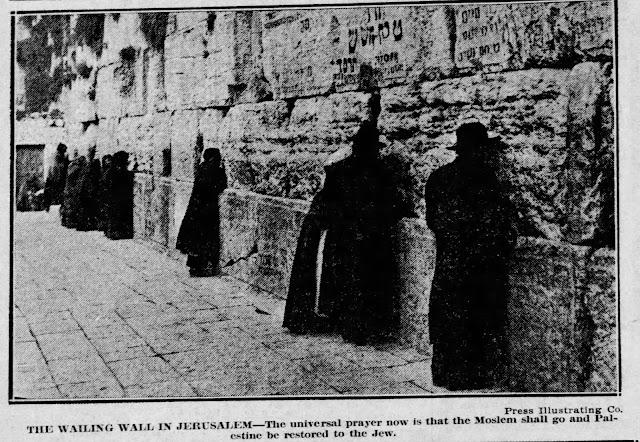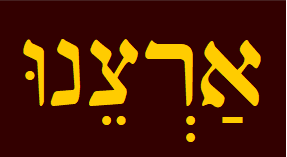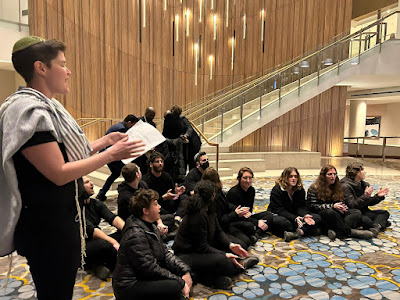Disclaimer: the views expressed here are solely those of the author, weekly Judean Rose columnist Varda Meyers Epstein.
Anyone who’s ever read a Bible knows that God gave Israel to the Jews. And yet, as of September 3, 2025, 147 United Nations member states have declared a state of “Palestine” on Jewish land. Two non-UN member states, Vatican City and the Sahrawi Arab Democratic Republic also recognized “Palestine” on Jewish land, for a total of 149 entities who think it’s okay to declare what God gave to the Jewish people, a state for the people who have tried everything they know to eradicate the Jewish people.
Now, Belgium has joined the chorus of countries, along with Australia, Canada, France, Malta, and the United Kingdom, that have decided to steal Jewish land and gift it to the people who have vowed to wipe out the Jews. All of these countries will bring their declaration to the United Nations General Assembly, which begins six days from now—the latest example of a long tradition: deciding for the Jews what to do with Jewish land.
Even more so after October 7, when Jews were raped, mutilated, and burned alive by those the world wants to take over Jewish land. Why not? Antisemitic academics, international bodies, and even some misguided Jews claim that our people’s attachment to this land is a recent invention, a political project, or an act of colonialism.
But what none of these governments, scholars, or pundits can erase is the truth Jews carry in their mouths and hearts every day. In our prayers—morning, noon, and night, on weekdays, Sabbaths, and festivals—we declare again and again our eternal bond to this land. Our liturgy is our living title deed.
To be sure, not every Jew prays. Not every Jew is observant. But the Torah was given to every Jew, as was Israel. And whether or not a Jew opens a siddur, the words of prayer have bound our people together across generations, keeping Israel at the center of Jewish life.
Liturgy as Living History
These liturgical references are not accidental. Israel was not “invented” and inserted into our prayers. These references to Israel form a continuous thread from our earliest days as a people until now. The words come from God Himself—from Torah, Psalms, and Prophets. Our sages safeguarded those words and wove them into the rhythm of daily life. After the destruction of the Second Temple, the rabbis acted with purpose, ensuring that Israel and Jerusalem would never fade from our hearts. Even in exile, they structured our prayers around yearning for home.
A Jew in medieval Spain, Yemen, or Poland prayed the same words Jews say to this day: “Return in compassion to Jerusalem Your city… rebuild it soon in our days.” For two thousand years, those words kept us facing east, toward Zion. They kept us bound together as one people, one nation, with one homeland.
This is not colonial nostalgia. It is lived reality. For Jews, Israel was never “over there.” It was always right here, on our lips, in our hopes, in our obligations. The dream of return was not optional piety; it was embedded in the rhythm of our days.
Answering Today’s Critics
When today’s activists, politicians, or academics declare that Jews have no indigenous claim to Israel, they erase centuries of daily testimony. The very prayers we recite prove them wrong. Imagine a people in exile for millennia, clinging to their identity through ritual words that call them home. This is not a people inventing ties to land — it is a people preserving them against all odds.
Our critics can argue politics, but they cannot rewrite our liturgy. They cannot erase the Rachem prayer in Birkat HaMazon, the Boneh Yerushalayim in the Amidah, the Ya’aleh V’yavo on festivals, or the Al HaMichya after-blessing that recalls both the land and Jerusalem. These references to the Land of Israel are not side notes, but the heartbeat of Jewish prayer.
Jewish indigeneity to the Land of Israel is not just history written in archaeology, or law codified in scripture. It is at the heart of our daily prayers. Each blessing and each festival returns us to the land. Even in exile, the words kept us near.
Critics often speak as though Jews once lived in Israel, were exiled, and were replaced by an Arab nation called Palestine. This is a distortion of history. There was never a state called Palestine, and certainly never an Arab state by that name. While most Jews were exiled, many remained — some hiding in caves, others clinging to towns and villages. Across centuries of conquest and oppression, there was always a Jewish presence in the Land of Israel.
That is why Israel matters to Jewish people everywhere. It is not a political project, nor an afterthought of modern nationalism. It is the fulfillment of a promise never forgotten: that Israel is our home, and Jerusalem our eternal city.
📖 Some References to the Land of Israel in Jewish Liturgy
| Prayer Section | Text (Hebrew / Verse / Citation) | Translation / Context |
|---|---|---|
| P’sukei D’zimra (Verses of Psalms; morning intro prayers) |
Ps. 132:13 — כִּי בָחַר ה׳ בְּצִיּוֹן, אִוָּהּ לְמוֹשָׁב לוֹ | “For the Lord has chosen Zion; He has desired it for His dwelling.” — God’s dwelling in Zion/Jerusalem. |
| Ps. 146:10 — יִמְלֹךְ ה׳ לְעוֹלָם... צִיּוֹן לְדֹר וָדֹר | “The Lord shall reign forever… O Zion, to all generations.” — Enduring divine rule over Zion. | |
| Ps. 147:12 — שַׁבְּחִי יְרוּשָׁלַיִם אֶת־ה׳, הַלְלִי אֱ-לֹהַיִךְ צִיּוֹן | “Praise the Lord, O Jerusalem; praise your God, O Zion.” — Praise for Jerusalem/Zion. | |
| Ps. 135:21 — בָּרוּךְ ה׳ מִצִּיּוֹן, שֹׁכֵן יְרוּשָׁלִָם | “Blessed is the Lord from Zion, who dwells in Jerusalem.” — God’s presence in Zion/Jerusalem. | |
| Ps. 48:13–15 — סֹבּוּ צִיּוֹן... מִגְדָּלֶיהָ | “Walk about Zion… count her towers…” — Zion as enduring stronghold for future generations. | |
| Amidah (Central Prayer) Weekday / Shabbat / Yom Tov |
קִבּוּץ גָּלֻיּוֹת — וקבצנו יחד מארבע כנפות הארץ לְאַרְצֵנו | “Gather us from the four corners of the earth to our land.” — Ingathering of exiles. |
| בּוֹנֵה יְרוּשָׁלַיִם — ולירושלים עירך ברחמים תשוב | “Return in compassion to Jerusalem Your city.” — Plea to rebuild Jerusalem. | |
| עֲבוֹדָה — וְתֶּחֱזֶינָה עֵינֵינוּ בְּשׁוּבְךָ לְצִיּוֹן בְּרַחֲמִים | V’techezenah eineinu b’shuvcha l’Tzion b’rachamim — “May our eyes behold Your return to Zion in mercy.” | |
| יעלה ויבוא (insert on festivals/Rosh Chodesh) | “The remembrance of Jerusalem Your city… and of Messiah son of David Your servant.” | |
| Musaf (Festivals/Rosh Chodesh) | וּמִפְּנֵי חַטָּאֵינוּ גָּלִינוּ מֵאַרְצֵנוּ... וְהַחֲזִירֵנוּ לְצִיּוֹן עִירֶךָ | “Because of our sins we were exiled from our land… return us to Zion Your city.” — Exile and return theme. |
| Shabbat Mincha Amidah — Ata Echad | עַם אֶחָד בָּאָרֶץ | “One nation on earth.” — National unity rooted in the Land. |
| Torah Reading (Ki Mitzion) | כִּי מִצִּיּוֹן תֵּצֵא תוֹרָה, וּדְבַר ה׳ מִירוּשָׁלִָם (Isa. 2:3) | “For out of Zion shall go forth the Torah, and the word of the Lord from Jerusalem.” |
| Hashkiveinu (Shabbat Evening) | הַפּוֹרֵשׂ סֻכַּת שָׁלוֹם... עַל עַמּוֹ יִשְׂרָאֵל וְעַל יְרוּשָׁלִָם | “Who spreads the shelter of peace… over His people Israel and over Jerusalem.” |
| Nachem (Tisha B’Av) | נַחֵם... אֲבֵלֵי צִיּוֹן וַאֲבֵלֵי יְרוּשָׁלַיִם... בּוֹנֶה יְרוּשָׁלַיִם | “Comfort the mourners of Zion and Jerusalem… who rebuilds Jerusalem.” |
| Shacharit (Concluding line in many rites) | אוֹר חָדָשׁ עַל צִיּוֹן תָּאִיר | “Let a new light shine upon Zion.” — Hope for Zion’s renewal. |
| Monday Psalm (near end of morning service) |
Ps. 48 — “Walk about Zion… count her towers.” | Reprise of Zion’s endurance within the weekly cycle. |
| Birkat HaMazon (Grace After Meals) Weekday core text |
על שהנחלת לאבותינו ארץ חמדה טובה ורחבה | “…for the inheritance of the desirable, good, and spacious land You gave our ancestors.” Al she’hinchalta la’avoteinu eretz chemda tova ur’chava |
| ברוך אתה ה׳... על הארץ ועל המזון | “Blessed are You… for the land and for the sustenance.” …al ha’aretz v’al ha’mazon |
|
| ועל ירושלים עירך | “…and on Jerusalem Your city…” V’al Yerushalayim irecha |
|
| ועל ציון משכן כבודך | “…and on Zion, the dwelling of Your glory…” V’al Tziyon mishkan kevodecha |
|
| ובנה ירושלים עיר הקודש במהרה בימינו | “And rebuild Jerusalem, Your holy city, speedily in our days.” U’vnei Yerushalayim ir hakodesh bimeheirah b’yameinu |
|
| ברוך אתה ה׳, בונה ברחמיו ירושלים | “Blessed are You, Lord, who in His mercy rebuilds Jerusalem.” …boneh b’rachamav Yerushalayim |
|
| Al HaMichya (After-blessing for light meals) | ועל הארץ ועל המחיה… ועל ארץ חמדה טובה ורחבה… ובנה ירושלים עיר הקדש במהרה בימינו | “…for the land and for the sustenance… for the desirable, good, and spacious land… and rebuild Jerusalem Your holy city, speedily in our days.” |
Note: Texts and wording vary by nusach (rite), community, and siddur. This chart highlights many central references to the Land of Israel and Jerusalem, but is incomplete and should not be relied upon as an exhaustive index.
|
"He's an Anti-Zionist Too!" cartoon book (December 2024) PROTOCOLS: Exposing Modern Antisemitism (February 2022) |
 |


.jpeg)

 Buy
Buy 



























.jpg)





